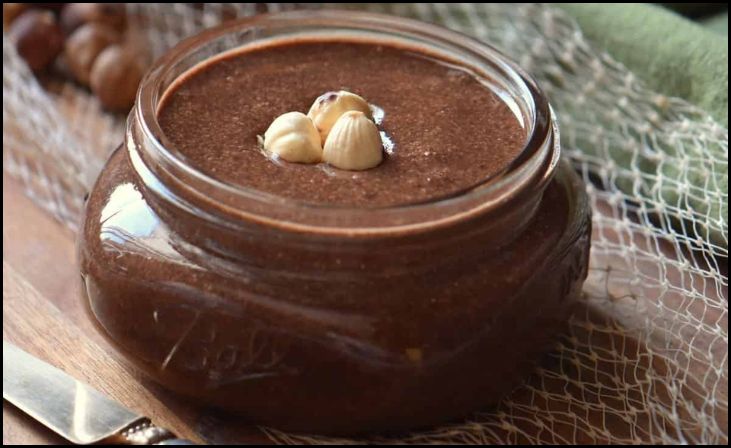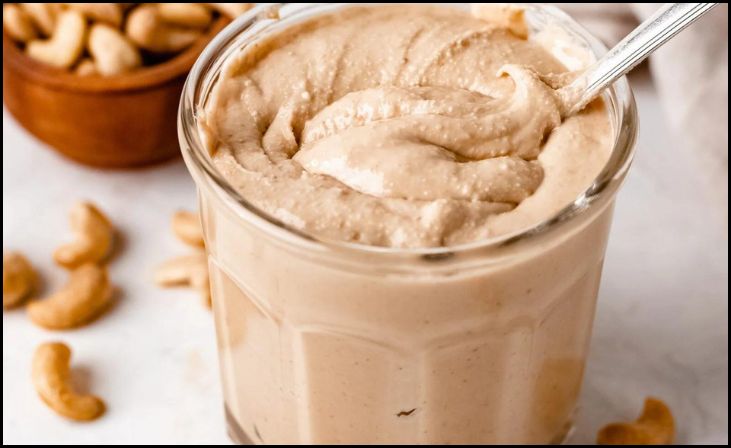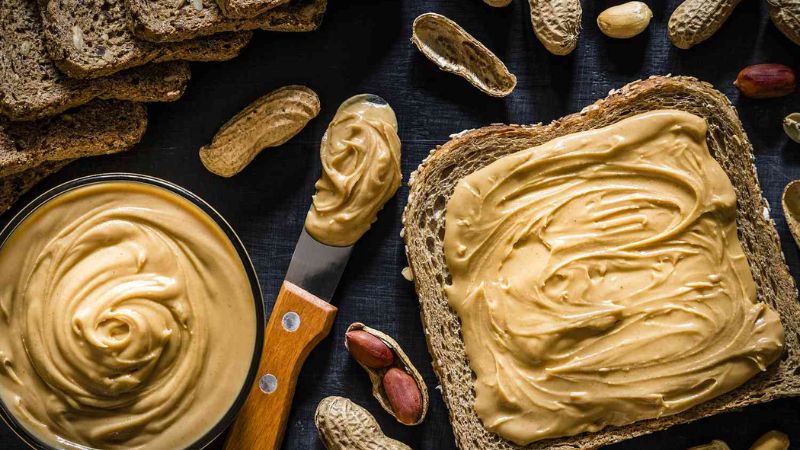Nut butters are a popular pantry staple, offering a convenient and versatile source of protein and healthy fats. However, not all nut butters are created equal when it comes to nutritional value. While some varieties provide a nutritious boost, others may contain added sugars, unhealthy fats, and artificial ingredients that undermine their health benefits. In this article, we’ll explore the 10 unhealthiest nut butters commonly found on grocery shelves, shedding light on their potential drawbacks and health concerns.
Chocolate Hazelnut Spread

Chocolate hazelnut spread is a beloved indulgence for many, but its nutritional profile leaves much to be desired. While delicious, most chocolate hazelnut spreads are loaded with added sugars and unhealthy fats, making them more akin to a dessert spread than a nutritious choice. Consuming these spreads regularly can contribute to excessive calorie intake and may increase the risk of weight gain and other health issues.
Cookie Butter
Cookie butter may sound like a dream come true for cookie enthusiasts, but it’s far from a healthy option. Typically made from ground-up cookies, cookie butter is high in sugar and unhealthy fats, lacking the nutritional benefits of whole nuts. While it may satisfy your sweet tooth, indulging in cookie butter regularly can lead to spikes in blood sugar levels and contribute to weight gain over time.
Peanut Butter with Added Sugars
While peanut butter is a popular and nutritious choice for many, some brands add sugars and other sweeteners to their products, turning a wholesome snack into a sugary treat. Peanut butter with added sugars may taste sweeter, but it comes at the cost of nutritional value. Excessive sugar intake has been linked to various health issues, including obesity, type 2 diabetes, and heart disease, so it’s best to opt for natural, unsweetened peanut butter whenever possible.
Almond Butter with Added Oils
Almond butter is prized for its rich flavor and creamy texture, but some varieties include added oils to enhance these qualities. While these oils may improve taste and mouthfeel, they also increase the overall calorie and fat content of the nut butter. Almond butter with added oils may be higher in unhealthy fats, so it’s important to read labels carefully and choose options with minimal added ingredients.
Cashew Butter with Added Sugars

Similar to peanut butter, cashew butter can also fall victim to added sugars and sweeteners. Cashew butter with added sugars may seem like a delicious treat, but it can sabotage your efforts to maintain a healthy diet. Consuming too much sugar can lead to energy crashes, cravings, and long-term health issues, so it’s wise to opt for natural, unsweetened varieties of nut butter whenever possible.
Macadamia Nut Butter
Macadamia nuts are known for their buttery flavor and rich texture, but their butter counterparts can be high in saturated fats. Macadamia nut butter may contain elevated levels of saturated fats, which have been linked to heart health concerns when consumed in excess. While macadamia nut butter can be enjoyed in moderation as part of a balanced diet, it’s essential to be mindful of portion sizes to avoid overindulgence.
Coconut Butter
Coconut butter has gained popularity in recent years, thanks to its creamy consistency and tropical flavor. However, coconut butter is extremely high in saturated fats, which may raise cholesterol levels and increase the risk of heart disease when consumed in large amounts. While coconut butter can add richness to recipes, it’s best to use it sparingly and balance it with other sources of healthy fats.
White Chocolate Peanut Butter
Combining the indulgent flavors of white chocolate with the creamy goodness of peanut butter, white chocolate peanut butter may sound like a decadent treat. However, most varieties are high in sugar and unhealthy fats, making them one of the least healthy nut butter options on the market. While an occasional indulgence is fine, it’s essential to limit consumption to avoid excess sugar and calorie intake.
Cinnamon Sugar Almond Butter
While cinnamon adds warmth and flavor without adding calories, many cinnamon sugar almond butter varieties include added sugars to enhance sweetness. While these spreads may taste delicious, they can contribute to excessive sugar intake and may undermine your efforts to maintain a balanced diet. Opt for natural almond butter and add your own cinnamon for flavor without the added sugars.
Toffee Crunch Peanut Butter

Similar to other flavored peanut butters, toffee crunch peanut butter tends to be high in added sugars and unhealthy fats. While it may satisfy your sweet tooth, indulging in toffee crunch peanut butter regularly can contribute to weight gain and other health issues associated with excessive sugar and calorie intake. Choose natural peanut butter options for a healthier alternative.




